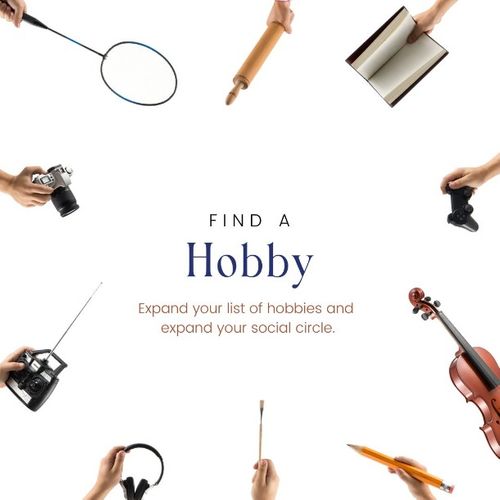The Importance of Having a Hobby
Jan 05, 2023 · 3 mins read
0
Share

Part 1: Why people are 'lonely' but 'busy'
People are lonely. Even before the pandemic, statistics showed an alarming trend of individuals reporting they had no close friendships. The isolation of COVID only exacerbated that. That's why you need a hobby.
Save
Share
Dr. Marisa Franco, in her book Platonic: How the Science of Attachment Can Help You Make--and Keep--Friends, gives readers a concrete step-by-step guide for how to generate platonic relationships. But first, let's explore why we're so bad at it and why it's so bad for us.
Save
Share
The culprits are clear: our obsession with social media and television; the virtue signaling of being 'busy;' the assumption friendship is organic; and a conflagration of the 'mere exposure effect,' 'risk regulation theory,' and the 'liking gap.' We'll take them in turn.
Save
Share
First there's the illusion we've created of being 'busy.' If we write our activities down though, we find that a lot of excess time is spent mindlessly scrolling on social media. But social media is a misnomer as it is about browsing without real engagement.
Save
Share
Society has also created a lie that it's a virtue to 'be busy.' It's a badge of honor that tells us we're VIPs who need to check their schedule before committing to anything. Brigid Schulte speaks of this at length in Overwhelmed: Work, Love, and Play When No One Has the Time.
Save
Share
Adults often assume friendship happens organically, like at school recess. People with this mentality are lonelier. The work it takes though is merely a sign of the complexity of adult existence versus the relative ease of childhood. We have more happening and a varied identity.
Save
Share
Finally, a few psychological factors get in our way. When our 'busy' selves do go out, it tends to be a one off event. This goes against the 'mere exposure effect'. We tend to like people who are familiar to us ... which only comes from repeated interaction.
Save
Share
We also seem to decide how much time to invest in a relationship based on how likely we think we are to be accepted. Basically we're risk averse and seek out affirming spaces and people we think will like us. We are 'risk regulators'
Save
Share
And lastly, we don't think much of ourselves. People believe that someone they meet won't like them. Statistically, the other person likes the individual more than the individual estimates. This is called the 'liking gap.'
Save
Share
Loneliness should concern us. The CDC has some sobering statistics:
Save
Share
0